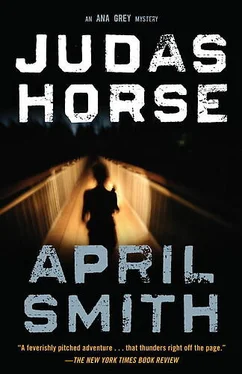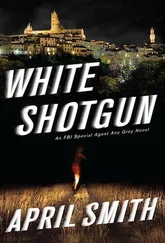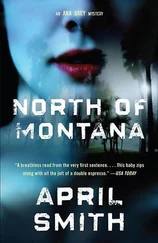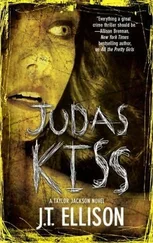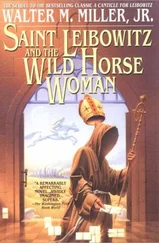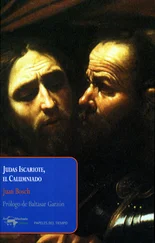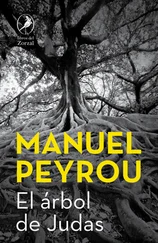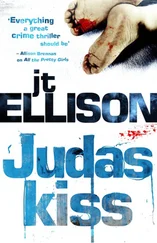And I had never seen the cold, self-centered steel in his character.
“You’re over twenty-one,” my grandfather said. “You can do as you damn well please.”
The morning of graduation, I picked Poppy up at the Days Inn (he was waiting outside — camera in hand, wearing Bermuda shorts, high socks, an FBI T-shirt and FBI cap) and we headed north. It was 10:00 a.m. and already we were drowning in the muggy, listless air.
Avoiding a revisit of last night’s dinner — how we ate quickly and skipped dessert, how it was endured in tense silence except for an argument about which exit Steve’s family should take from the airport — Poppy posed one of his “educational” questions: “What is Bull Run?” “It refers to an Indian chief whose tribe was massacred by U.S. troops and who tried to run away. They thought he was a coward, but history proves he was outnumbered.” Poppy was incensed. He liked to run these quizzes to demonstrate my stupidity, but there was a limit.
“Bull Run is a stream !” he shouted. “The rebels were hiding in the woods along the banks of Bull Run and the Yankees were trapped. They couldn’t get across and they couldn’t go back. There were no goddamn Indians in sight. Goddamn it, Annie, don’t they teach anything in school?” “I guess I was thinking of Sitting Bull.”
“I’ll tell you what’s bull.”
I smiled with evil satisfaction for having provoked him. Manassas had a haunting sound, like a sultry breeze sweeping high dry grass. I knew it was the first major battle of the Civil War, a catastrophic fiasco, which is why I was struggling to maintain respect as we inched through choking traffic at Manassas Mall.
It was ugly.
“Imagine what lies beneath all this crap,” I said.
“What?”
“Bodies. History.”
“The battle was fought over here. ” He stabbed impatiently at a map. “Not at the mall. What’s the matter with you? Turn right after the overpass. Battle View Parkway, that has to be it.” The rental car was overheating, so I turned right. Battle View Parkway had no view of the battleground. It was an access route to an industrial development that ended in a cul-de-sac.
“Well that just tears it.”
Poppy folded his arms, as if perversely satisfied by yet another example of the failure of the world to see it his way.
“What I don’t understand is the disrespect.” He shook his head. “Using the sacrifice of our war heroes to name a street that goes nowhere.” It occurred to me that I had never heard my grandfather admit that he was wrong.
We came upon a split-rail fence that bordered a grassy hillock. The driveway rose and passed a spreading locust. Beneath its canopy, on the near horizon, were framed the crisp black silhouettes of half a dozen cannons. Instantly, my restlessness was stilled. My grandfather removed his FBI cap. The gravity of war seemed to toll the stagnant air, just as it had, hour by hour, the past 130 years. A taste came to the tongue — iron bitterness, like blood.
The car doors slammed and we stood in silence, looking over the rolling countryside, which had once been marked by tree lines, groves, a small white house — each a key location as the advantage of battle whipped from one side to the other like a thrashing snake. Now it was all open fields, and a tractor slowly worked the hay. Small groups of visitors paused here and there. The day was glaring, hazy. An American flag was drooping — limp as the flags that stultifying afternoon, July 21, 1861, when the grass was as high as the chests of seventeen-year-old boys, who fired on their own troops because they couldn’t tell the color of the standards they were carrying.
But that sort of thing was just a stitch in the whole mad carnality of it all, a hideously misjudged engagement, in which nearly five thousand naïve volunteers from both sides were killed or wounded. The red-soaked earth that day was strewn with body parts. In the makeshift hospitals, stacks of arms and legs and hands and feet were described as looking like piles of shucked corn.
The slaughter ended only when the Union retreated in terror, a disintegrating mob stampede. The politicians in Washington, D.C. — the Peter Abbotts of the past century — had promised “a great and glorious Union victory” in a week.
We paid ten dollars for a computer search for Joseph Grey or Gray, who could not be found. Poppy was in a swoon, taken with every detail he could swallow of the massive hand-to-hand encounter. Heroes abounded.
By then I was impatient with his petty chatter and eager to get back to the base and take an ice-cold shower. It was time.
“You never said what you think of Steve.”
“I didn’t like his eyes.”
“You don’t like his eyes.”
“They’re small.”
“I see.”
“They’ve got that hooded, criminal look.”
I turned toward his stringent profile. “Can I ask you something, Poppy? Are you and I on the same planet?” “You’re not going to marry that cracker.”
“You can’t stop us.”
“I wish I were that all-powerful,” he said ruefully.
But he was. And I didn’t marry Steve. I met his parents only briefly, after the ceremony. There were polite excuses for us not to get together — too many relatives, not enough time. We never made our announcement. He went to Miami. I went to Los Angeles. We wrote letters. We phoned. In six weeks, it faded to nothing. It never had a chance. Stillborn.
“We have to leave in fifteen minutes,” I told my grandfather, and left him in the gift shop.
Outside, the sounds were vivid — the call of birds and children’s voices shouting “Eee-ha!” as they scrambled over the barrels of the cannons. Fat black gnats flew in my ears and up my nose. And there was the slow, mysterious grinding of cicadas, like a mechanical toy winding and unwinding. Winding and unwinding, like an old lady rocking on a porch.
In the white house in the center of the green battlefield, there had, in fact, lived a lady named Mrs. Judith Carter Henry. Her pretty china dishes were preserved in the museum. Eighty-five years old, a widow, she refused to leave the safety of her bed, even when Union sharpshooters took over the house. The Confederates fired back with howitzers and Mrs. Henry was mortally wounded. Some say she took more than twenty hits. Sources vary.
By then I knew enough about the movement of the battle to see it play out vividly in the still, hot fields. I thought of Poppy, traveling all over the map, California to Colonial Virginia, in search of a hero to heal his wounded heart. Would I ever be that hero in his eyes?
In a few hours, I would become a federal agent of the United States government, bound to carry the shield of core values upon which I, good soldier, was about to swear. Us and them. Black and white. Law and order. It was the defining moment. I was about to become Special Agent Ana Grey, for good. I wonder now, Would Darcy have let Steve Crawford go?
A tractor slowly rolled the hay. The fields fell off toward the north, toward the glittering haze of Washington, D.C., from whose alabaster domes I would receive my orders.
I heard the cicadas singing. Their musical clicks went up and down.
Far away, in the white house, Mrs. Henry was rocking.
This had been her property. It had been a farm.
Special Supervisory Agents Angelo Gomez and Mike Donnato are waiting at a rest stop on the I-5 when I pull up in Darcy DeGuzman’s Civic. My cover is an appointment with a local dentist at a phony number manned by an FBI agent in L.A.
“Guys? This was bad.”
“That’s why we’re here.”
Donnato indicates a picnic area behind the brick restrooms, not visible from the freeway.
Читать дальше
